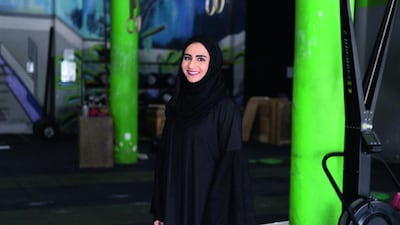Abeer Al Khaja, CrossFit level-two coach and co-founder of the Ana Gow Running Club in Dubai, will be coaching at CrossFit Metalize in Dubai while balancing her own training routine for the first time this Ramadan. The 29-year-old Emirati trainer, who is also a revenue optimisation manager at Emirates airline, says she has a game plan to keep going at full strength.
When do you train during Ramadan?
I prefer to work out two hours after breaking my fast. But during Ramadan, I focus more on strength training rather than cardio. It’s funny, but during Ramadan I find myself performing better. I don’t feel faint or tired.
How do you plan to balance CrossFit coaching and your own training during Ramadan?
This will be the first year that I will be coaching during Ramadan and I’m looking forward to it. I plan on shortening my own workouts to accommodate both. So I plan on doing 20-minute workouts rather than a full hour. I’ll be listening to my body, so if I’ve had a stressful day at work or my body doesn’t feel 100 per cent strong, I’ll do some light activity instead of an intense strength workout.
What does your food plan look like during Ramadan?
My suhoor comprises more carbs, like rice or mandi [traditional Yemeni dish of rice and meat], so that it fills me and keeps me energised throughout the day. At iftar, I start with dates and water and then have some soup and a wholegrain sandwich. After my workout I have a proper meal that comprises protein, vegetables and, sometimes, desserts that my mother makes. Of course, I drink a lot of water during all three meals, too.
Do you take supplements during Ramadan?
I take vitamin D, omega 3 which lubricates my joints, and zinc and magnesium, which help aid recovery and reduce soreness.

